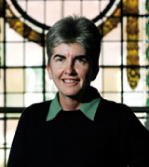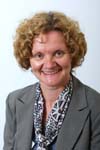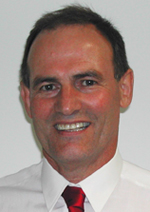Smarter Schools: CoAG National Partnerships Round Table
Monday 9 November 2009
Jointly presented by the National Centre for Student Equity in Higher Education and The Bob Hawke Prime Ministerial Centre
Sponsored by the University Aspirations Project: A UniSA project funded by the Australian Government Department of Education, Employment and Workplace Relations (DEEWR)
Recently the Council of Australian Government's (CoAG) agreed to three new "Smarter Schools" National Partnerships which aim to improve the outcomes for students and the skills and qualities of teachers and school leaders. These three National Partnerships are for Literacy and Numeracy, Improving Teacher Quality, and Low Socio-Economic-Status (SES) School Communities.
The federal government funding commitment with co-contributions from the South Australian government and non-government education sectors aims to bring about systemic and sustained educational reforms. A commitment to collaboration between the three schooling sectors in South Australia means that there is widespread interest in related matters.
The event will adopt a roundtable format and focus on the CoAG National Partnerships. The panel members include: Professor Lori Beckett from Leeds Metropolitan University, UK (low SES School Communities), Professor Barbara Comber from UniSA (literacy & numeracy), Professor Tania Aspland from Adelaide University (Improving teacher quality) and respondent Professor Alan Reid.
Speaker profiles:
Professor Lori Beckett

Lori Beckett took up her professorial appointment at Leeds Met in 2006, and on arrival began to organise and edit the centenary book, City of Leeds Training College 1907-2007 Continuity and Change, published by the university in October, 2007. Having led a team of twenty four people to bring the project to fruition, she was honoured to be nominated by Vice-Chancellor Professor Simon Lee for the newly established Winifred Mercier Chair of Teacher Education, in memory of the first so-called Lady Vice-Principal. In her first year, Lori also worked to establish school-university partnerships in inner city Leeds, forging inquiry communities where academic partners work with teacher partners to support professional learning and development focused on teachers' work practices. The 'Patterns for Learning' project, successfully trialled in Little London Community Primary School (LLCPS) in 2006-7, was rolled out into its family of schools in 2008 as 'Side-by-side learning' with one year TDA funding for CPD in Challenging Schools. This enabled the university to establish a connection with a network of disadvantaged schools and while we continue partnership work, we are developing a Masters of Practitioner Research, leading to the EdD and Phd studies. Lori is currently working to complete her book, Teaching in Tough Schools, which brings together the voices from our inquiry communities in disadvantaged schools in England and Australia, where she worked with schools on the NSW Priority Action Schools program. She has co-presented with teacher partners Jill Wood (LLCPS) and Kathleen Gallagher (City of Leeds High School) in numerous forums, including the DCSF 2009 spring workshops on the Gender Agenda.
Smarter Schools and Smarter Systems
The CoAG National Partnership for Low Socio-Economic-Status (SES) School Communities is to be applauded. There is an outstanding need to coordinate partners locally and nationally, in all sectors and systems, as they aim to embed educational reforms that meet the needs of schools serving students, families and communities with deep needs. This means that partnerships need to be well considered, and there is much to be done to secure a shared understanding of partnerships focussed on school practices as well as classroom practices. Research and practice in disadvantaged schools have much to tell us, and indeed Australia has a particularly solid reputation in this regard. However, challenges remain, not least about ways to build schools and systems as learning communities able to sustain long-term development projects in disadvantaged school-communities. This contribution draws on experiences of such work in Sydney in the NSW Priority Action Schools program up to 2006, and subsequently in the 'Patterns of Learning' project in inner-city Leeds. In this work, the school is the locus of action, with school Heads, academic and teacher partners, and support staff working together to identify issues of concern, engage in knowledge-building, develop a shared vocabulary, and institute authentic changes. This way of working has proved particularly successful, but partnerships require support to grow, in the school and then beyond into its community, its family of schools and district/local authority network/s. There needs to be opportunities for joint work, notably teacher-led action inquiry, which in turn facilitates the professional learning of all concerned. This then calls into play the real politik, not only the reforms couched in philosophical or theoretical terms, but the indicative actions underpinned by practical and material considerations.
Professor Barbara Comber
 Professor Barbara Comber is a key researcher in the Centre for Studies in Literacy, Policy and Learning Cultures in the Hawke Research Institute at the University of South Australia. Her particular interests include literacy education and social justice, teachers' work and identities, place and space, and practitioner inquiry. She has worked collaboratively with teachers in high poverty locations focussing on innovative and critical curriculum and pedagogies which address contemporary social challenges. She has recently published 2 books Literacies in place: Teaching environmental communication (Comber, Nixon & Reid, 2007) and Turn-around pedagogies: Literacy interventions for at-risk students (Comber & Kamler, 2005).
Professor Barbara Comber is a key researcher in the Centre for Studies in Literacy, Policy and Learning Cultures in the Hawke Research Institute at the University of South Australia. Her particular interests include literacy education and social justice, teachers' work and identities, place and space, and practitioner inquiry. She has worked collaboratively with teachers in high poverty locations focussing on innovative and critical curriculum and pedagogies which address contemporary social challenges. She has recently published 2 books Literacies in place: Teaching environmental communication (Comber, Nixon & Reid, 2007) and Turn-around pedagogies: Literacy interventions for at-risk students (Comber & Kamler, 2005).
'Way above the basics': Investing in literacies and numeracies that matter
The CoAG National Partnerships properly focus on key priorities for the schooling sectors: teacher quality, literacy and numeracy and low socio-economic school communities. Indeed it is hardly possible to talk about these areas separately and it is the relationships between these areas which are crucial to designing the new partnerships. For several decades all of my work , and a great deal of that of my colleagues and the educators from school systems we work with throughout Australia, has been directed at improving the teaching of literacy (and more recently numeracy) in low SES communities. So what's new here? To what extent is there reason for optimism in the Smarter Schools Agenda? For teachers of literacy and numeracy in schools and universities around Australia what are the risks and possibilities? The teacher-researcher quoted in my title insists that the work they are doing in her highly culturally diverse school community is 'way more sophisticated' than anything which might be described as basic. In these new partnerships we need to ensure that the literacies and numeracies available to young people are way above recycled old literacies and numeracies for yesterday's worlds of work, leisure and communication. These collaborations need to allow for serious investments in critical, complex and engaging learning for all young people. In terms of scaling up interventions that work the focus should be upon supporting the people who negotiate the curriculum in our most challenging places. In scaling up we need to avoid abstracting out the realities of life and work in real communities. We need to re-define teachers' working conditions so that collaborative research focussed on making a difference to students' learning is part of the job description.
 Professor Tania Aspland is Professor and Head of the School of Education at the University of Adelaide. She has been employed in the university sector since 1980. During the past ten years she has focused her expertise around several areas of scholarship. These include:
Professor Tania Aspland is Professor and Head of the School of Education at the University of Adelaide. She has been employed in the university sector since 1980. During the past ten years she has focused her expertise around several areas of scholarship. These include:
- teacher education
- curriculum theory
- curriculum development and evaluation
- higher education curriculum studies
- curriculum leadership
- postgraduate pedagogy
- community capacity building
- thesis supervision of international students
- professional development
Improving Teacher Quality: Concerns, contestations and challenges
Public interest in pre-service teacher education programs in Australia has been prompted by many factors such as: current school reform literature; technological change; issues of globalization; the predicted crisis in teacher supply; the intensification of teachers' work; changing pedagogies; and new education organizational structures. As a result, teacher education in Australia is reconstituting itself in new ways in response to government initiatives, sector demands and public scrutiny and universities are designing an array of new programs that will better prepare quality teachers for new times.
Despite this changing context, Government in Australia has expressed grave concerns about literacy and numeracy standards across Australian schools and held "poor teacher training" responsible for such outcomes. It is the contention of most teacher educators that such a statement is ill-informed and based on evidence that is largely anecdotal, emotive and politically motivated. The current intense interest in schools, the quality of teacher graduates and teacher education is nothing new.
The QTNP Teacher Quality reforms are designed to educate and train quality teachers with a view to enhancing student outcomes in literacy, numeracy and science. The focus on attracting the best entrants to teaching, reward payments for teachers, the development of a set national competency benchmarks against which teachers will be assessed and the generation of a national teacher registration authority and a national teacher accreditation authority are proposed within the QTNP as ways of enhancing the quality of graduate teachers and practising teachers.
This session will raise a series of dilemmas and contestations around key issues central to the co-existence of projects designed, on the one hand, to achieve a greater professionalization of the teaching force in the interests of quality; while at the same time, initiatives, designed to regulate the nature of teacher education and the shape of teacher graduates through standards and competencies, are unfolding.
Professor Alan Reid (Respondent)

Alan Reid is Professor Emeritus of Education at the University of South Australia. His research interests include education policy, curriculum theory and the history and politics of public education, and he has led a number of state and national curriculum initiatives. The Australian Council of Educational Leaders (ACEL) recently named him as its 2009 Gold Medallist in recognition of his contributions to education and educational leadership.
Connections to National Curriculum
In his response to the three panellists Alan Reid will locate the three National Partnerships inside the so called 'education revolution' agenda, making particular reference to the national curriculum. He will then undertake a critical analysis, arguing that although equity is claimed to be central to the agenda, there are many aspects of it that are/will be counterproductive to equity.
The National Centre for Student Equity in Higher Education
The Centre has been established by the Australian Government to produce and disseminate knowledge about the inclusion in higher education of socially and economically disadvantaged groups, and to facilitate dialogue and exchange among relevant researchers, practitioners and policy makers. It also provides advice on student equity policies and practices to institutions and systems across all education sectors.

While the views presented by speakers within the Hawke Centre public program are their own and are not necessarily those of either the University of South Australia or The Hawke Centre, they are presented in the interest of open debate and discussion in the community and reflect our themes of: strengthening our democracy - valuing our cultural diversity - and building our future



